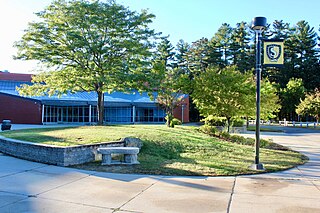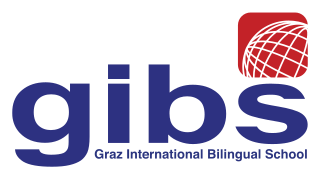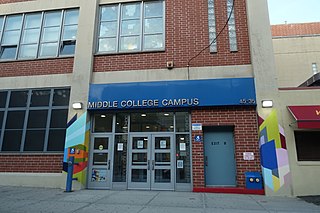Academics
ACE offers academically challenging courses aligned to Texas Education Agency standards, condensed into an accelerated pace. Students tackle two classes at a time, dedicating at least two hours daily per course. This concentrated approach allows learners to focus deeply and gain semester credits in approximately 30 days per class.
The self-paced model enables students to devote additional time to their goals as needed, leading them to understand material through review. Teachers continuously tailor instructional materials to student needs, with some interdisciplinary projects being cross-curricular, allowing them to fulfill requirements across multiple subjects to optimize for efficient learning.
The small class sizes encourage individualized attention, allowing students to choose their own daily schedule within flexible parameters, arriving between 7:30 AM - 10 AM, for at least four hours daily, with two hours minimum per class. The school day ends at 2 PM, but is paired with an extended calendar that furthers the opportunity for progress with a shorter summer break. Students return to their academic studies after resting mid-June to mid-July. The personalized scheduling grants students flexibility to manage personal responsibilities while actively pursuing their diploma.
Gifted education is a sort of education used for children who have been identified as gifted or talented.
A course credit is a measure of the size of an educational course, often used to determine whether the requirements for an award have been met, to facilitate transfer between institutions, or to enhance intercomparability of qualifications. Credit may be input-based – defined by the quantity of instruction given – or outcome-based – defined by the learning outcomes and a notional time to achieve those outcomes.
A virtual campus or e campus, refers to the online offerings of a college or university where college work is completed either partially or wholly online, often with the assistance of the teacher, professor, or teaching assistant. Many colleges and universities now offer such courses either partially or wholly online. There are an estimated 4,500 such institutions with total enrollments approaching perhaps 2 million.
The Ohio Graduation Test (OGT) is the high school graduation examination given to sophomores in the U.S. state of Ohio. Students must pass all five sections (reading, writing, mathematics, science and social studies) in order to graduate. Students have multiple chances to pass these sections and can still graduate without passing each using the alternative pathway. In 2009, the Ohio legislature passed an education reform bill eliminating the OGT in favor of a new assessment system. The development and transition of replacement began in 2014 and ended in 2022.
Graduated driver licensing systems (GDLS) are designed to provide new drivers of motor vehicles with driving experience and skills gradually over time in low-risk environments. There are typically three steps or stages through which new drivers pass. They begin by acquiring a learner's permit, progress to a restricted, probationary or provisional license, followed by receipt of a full driver's license. Graduated drivers' licensing generally restricts nighttime, expressway, and unsupervised driving during initial stages, but lifts these restrictions with time and further testing of the individual, eventually concluding with the individual attaining a full driver's license.

Driver's education, driver education, driving education, driver's training, driver's ed, driving tuition or driving lessons is a formal class or program that prepares a new driver to obtain a learner's permit or driver's license. The formal class program may also prepare existing license holders for an overseas license conversion or medical assessment driving test or refresher course. It may take place in a classroom, in a vehicle, online, or a combination of the above. Topics of instruction include traffic code or laws and vehicle operation. Typically, instruction will warn of dangerous conditions in driving such as road conditions, driver impairments, and hazardous weather. Instructional videos may also be shown, demonstrating proper driving strategies and the consequences for not observing the rules.

Michael E. DeBakey High School for Health Professions is a medical secondary school located in the Medical Center area of Houston, Texas, United States. It is a part of the Houston Independent School District.

Souhegan Cooperative High School is a Coalition of Essential Schools high school located in Amherst, New Hampshire, in the United States. Students from Amherst and Mont Vernon attend Souhegan for 9th through 12th grades. There are about 750 students. The school was founded based on the work of Theodore R. Sizer, a former dean of the Harvard Graduate School of Education, a notable American education reform leader and the father of the Essential Schools movement. Notably, Souhegan's progressive reputation has been chronicled in the book Standards of Mind and Heart: Creating the Good High School by Tony Wagner, Peggy Silvia and Dr. Robert A. Mackin. Based on this history, the school was founded with the mission "Souhegan High School aspires to be a community of learners born of respect, trust and courage." The school name is derived from its proximity to the Souhegan River, which adjoins the school property. The word Souhegan comes from the Algonquin language, meaning "waiting and watching place".

Windfern High School is a public secondary school located in unincorporated Harris County, Texas, United States.
Santa Gertrudis Independent School District (SGISD) is a public school district in Kingsville, Kleberg County, Texas, United States. The district covers approximately 190 square miles (490 km2), and is located in 40 miles (64 km) south of the city of Corpus Christi. SGISD operates Santa Gertrudis Elementary and Academy High School. During the 2009–2010 school year, SGISD had 397 students enrolled, according to Texas Education Agency.
A super senior is a student in a four-year educational institution who has more than four years in attendance or a surplus of credits required for a diploma and has not yet graduated. In certain cases these students are also known as postgraduates.

The Graz International Bilingual School (GIBS) is an Austrian bilingual (English/German) university preparatory semi-independent charter school Gymnasium in Graz, Austria. The school mainly focuses on languages, offering German, English, Russian, Latin, French and Spanish. Students graduate with the Austrian Matura, the IB Diploma or with both, assuming that they meet the criteria necessary.

Middle College High School at LaGuardia Community College (MCHS) is a public high school located on the campus of LaGuardia Community College in the Long Island City neighborhood in Queens, New York City, New York, United States. MCHS houses approximately 500 students in 45-35 Van Dam Street, the former L building of LaGuardia College's campus. It is a school within the New York City Department of Education. It is a member of the Middle College National Consortium.

Open education is an educational movement founded on openness, with connections to other educational movements such as critical pedagogy, and with an educational stance which favours widening participation and inclusiveness in society. Open education broadens access to the learning and training traditionally offered through formal education systems and is typically offered through online and distance education. The qualifier "open" refers to the elimination of barriers that can preclude both opportunities and recognition for participation in institution-based learning. One aspect of openness or "opening up" education is the development and adoption of open educational resources in support of open educational practices.
Remedial education is assigned to assist students in order to achieve expected competencies in core academic skills such as literacy and numeracy.
Waxahachie Global High School is a high school in Waxahachie, Texas, founded in 2007 on the historic T.C. Wilemon campus. It is one of only 91 STEM academies in the state of Texas. It was additionally granted Early College High School status in 2009 through a partnership with Navarro College, allowing students to earn an associate degree along with their high school diploma. Recently, as of the start of the 2013-2014 school year, Global High made a partnership with UT Tyler for all the STEM-based college courses offered at Global. As a public charter school, students from Ellis County and surrounding areas can attend regardless of zoning. Many students commute from surrounding cities such as Waxahachie, Red Oak, Ennis, Maypearl, Midlothian, Palmer, Italy, Cedar Hill, and Desoto. In 2014, Waxahachie Global was named the "Best High School" by the U.S. News & World Report. Starting in the 2018-19 school year, the Global campus is located in the Billy R. Hancock Building.
Chaparral Star Academy is a public charter school in Austin, Texas. It is an open-enrollment, publicly funded charter school in Austin, Texas. The students often participate in out-of-school activities, such as national figure skating, gymnastics, and equestrian competitions. Chaparral Star Academy offers an intensive curriculum designed for students making use of a more compact daily schedule. Students may choose from a morning session or an afternoon session. The schedule is ideal for highly motivated students involved in major programs outside of the classroom and families in need of a more flexible daily schedule.

Edward R. Murrow High School is located in Midwood, Brooklyn, New York, and is operated by the New York City Department of Education. The school is dedicated to the arts, and students can audition for programs in music, fine and visual arts, or theater. The school was established in 1974 by Saul Bruckner, who also served as its first principal, and was named after the renowned broadcast journalist Edward R. Murrow. The school was founded based on the pedagogical theories of John Dewey and the learning and teaching methods of John Dewey High School.
A high school diploma or high school degree is a diploma awarded upon graduation of high school. A high school diploma is awarded after completion of courses of studies lasting four years, typically from grade 9 to grade 12. It is the school leaving qualification in the United States and Canada.
Teaching English as a second (TESL) orforeign language (TEFL) and teaching English to speakers of other languages (TESOL) are terms that refer to teaching English to students whose first language is not English. The terms TEFL, TESL, and TESOL distinguish between a class's location and student population, and have become problematic due to their lack of clarity. TEFL refers to English-language programs conducted in countries where English is not the primary language, and may be taught at a language school or by a tutor. For some jobs, the minimum TEFL requirement is a 100-hour course; the 120-hour course is recommended, however, since it may lead to higher-paid teaching positions. TEFL teachers may be native or non-native speakers of English.









